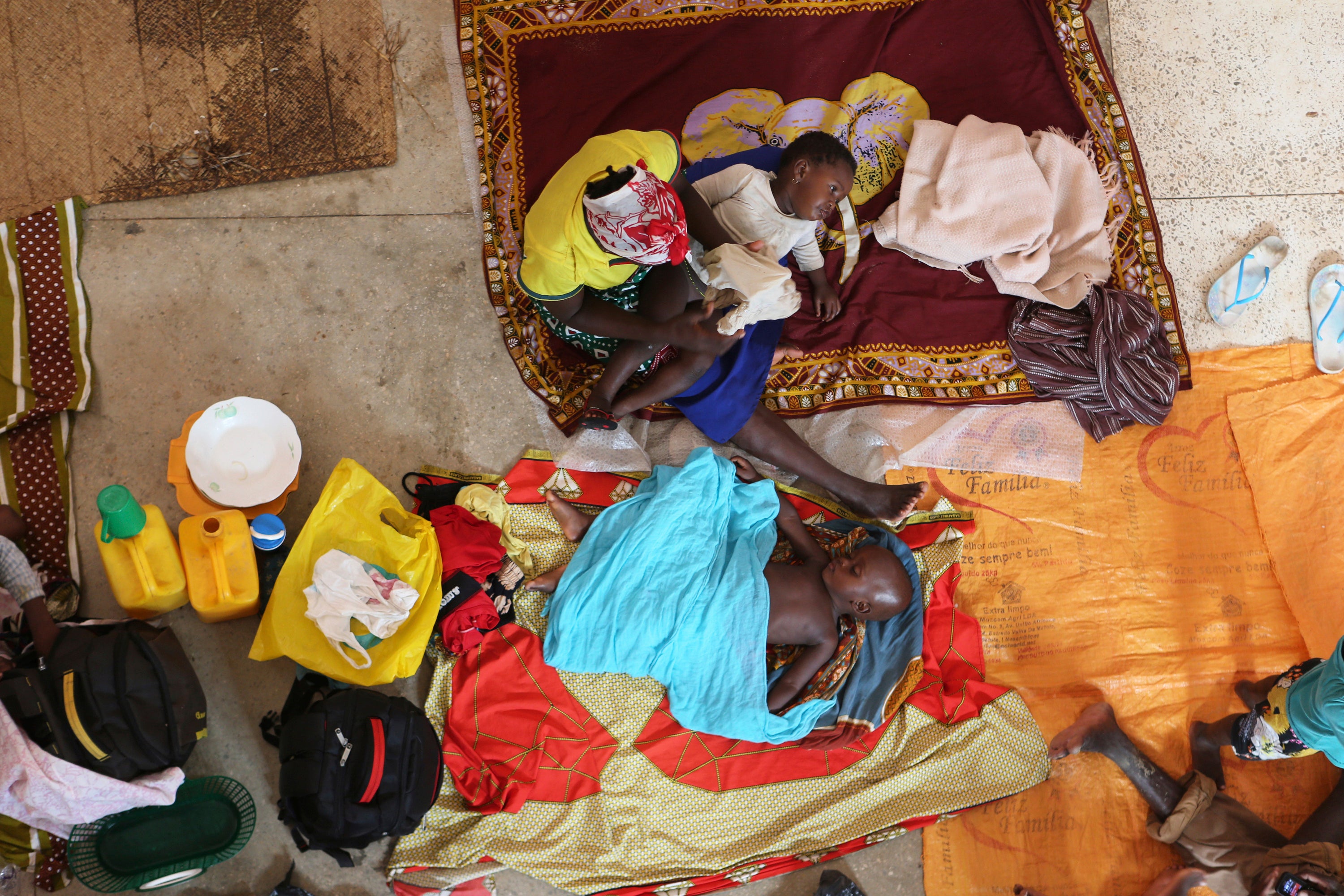Children among victims of jihadi rebels in Mozambique
International aid groups say northern Mozambique’s humanitarian crisis is growing quickly, with more than 650,000 people displaced by the Islamic extremist insurgency in Cabo Delgado province

Your support helps us to tell the story
From reproductive rights to climate change to Big Tech, The Independent is on the ground when the story is developing. Whether it's investigating the financials of Elon Musk's pro-Trump PAC or producing our latest documentary, 'The A Word', which shines a light on the American women fighting for reproductive rights, we know how important it is to parse out the facts from the messaging.
At such a critical moment in US history, we need reporters on the ground. Your donation allows us to keep sending journalists to speak to both sides of the story.
The Independent is trusted by Americans across the entire political spectrum. And unlike many other quality news outlets, we choose not to lock Americans out of our reporting and analysis with paywalls. We believe quality journalism should be available to everyone, paid for by those who can afford it.
Your support makes all the difference.Northern Mozambique's humanitarian crisis is growing rapidly, with nearly 670,000 people displaced by the Islamic extremist insurgency in Cabo Delgado province, international aid groups said Tuesday.
Children as young as 11 are being beheaded by the rebels, according to workers for Save the Children, who interviewed grief-stricken families.
The number of displaced has dramatically increased by more than 500,000 in the past year and nearly 1 million people are in need of food aid, according to the U.N. A high number of the displaced are dependent upon the generosity of already poor families, with shortages of water, food, and sanitation widespread.
More than 2,600 people have died in the conflict since it started in 2017, according to the Armed Conflict Location and Event Data Project.
In response to the deteriorating security situation in Cabo Delgado, the United States this week sent military specialists to train the Mozambican army to battle the extremists.
The extremists have held the port town of Mocimboa da Praia since August, and in recent months they have attacked several villages and made it unsafe to travel to other centers by road. The extremists are allied with the Islamic State group but are known locally as al-Shabab, although they have no known ties to the extremist rebels in Somalia who go by that name.
The conflict is in a resource-rich area where huge deposits of liquified natural gas have been discovered and the French gas firm Total has embarked on a multibillion-dollar investment.
Families fleeing the violence hike for days and nights on paths through the jungle, coming across the remains of those who died on the perilous journey or who were killed by the insurgents, according to Save the Children workers who interviewed survivors.
The rapidly increasing numbers of displaced people come as Cabo Delgado province is still recovering from severe cyclones in 2019.
“Reports of attacks on children sicken us to our core," said Chance Briggs, Save the Children’s country director in Mozambique. "Our staff have been brought to tears when hearing the stories of suffering told by mothers in displacement camps. This violence has to stop, and displaced families need to be supported as they find their bearings and recover from the trauma.”
Last week the Biden administration designated Mozambique's extremist rebels as a “foreign terrorist organization,” imposing wide-ranging sanctions on the group.
War crimes have been committed by all sides fighting in Mozambique’s conflict, including the jihadi rebels, government forces and a South African mercenary outfit that provides helicopter support to government troops, according to international rights group Amnesty International
The U.S. military specialists will conduct a two-month training program with Mozambican marines “to prevent the spread of terrorism and violent extremism,” the U.S. embassy in Mozambique's capital, Maputo, said in a statement Monday.
In addition to training, the U.S. government will also provide medical and communications equipment, said the statement.
Following the reports of abuses in the Mozambican conflict, the short U.S. statement emphasized that the trainers will promote human rights.
“The United States prioritizes the respect for human rights, protection of civilians, and engagement with civil society in all security assistance,” said the statement. “The United States is committed to supporting Mozambique with a multifaceted and holistic approach to counter and prevent the spread of terrorism and violent extremism.”
___
Tom Bowker in Uzes, France, contributed to this report.